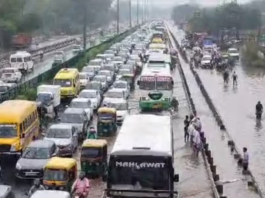
Since the collapse of a truce between the Tehreek-e-Taliban Pakistan (TTP) – also known as the Pakistani Taliban – and the government last year, jihadist militants have carried out a number of attacks in Pakistan.
Details of a few of the attacks that occurred prior to Friday’s unprovoked suicide bombings at two mosques are included here.
The TTP denied involvement in the bombings on Friday, despite having as its stated goal the imposition of Islamic law in Pakistan, much like the Afghan Taliban had done in Afghanistan.
JANUARY
On January 30, a suicide bomber detonated himself inside a crowded mosque inside a well guarded security enclosure in the northwestern city of Peshawar, killing at least 100 people, predominantly policemen, and injuring 57 others.
Since two suicide explosions at All Saints Church in September 2013, which were one of the bloodiest attacks against Pakistan’s Christian minority, this attack was the deadliest in Peshawar.
The TTP faction Jamaat-ul-Ahrar claimed responsibility for the bombing. TTP spokesman Mohammad Khorasani denied responsibility for the incident and stated that it was against the group’s policy to strike mosques or other places of worship.
MARCH
On March 6, a suicide bomber slammed his motorbike into a police truck in Sibbi, a city some 160 kilometres (100 miles) east of Quetta, the capital of the Balochistan province, killing nine officers.
According to the SITE Intelligence Group, Islamic State, which is battling the Taliban in neighbouring Afghanistan, took credit for the strike.
APRIL
On April 10, an explosion in a Quetta market targeted a police car, leaving four persons dead and fifteen injured. A station house officer (SHO) was the target of a subsequent attack in Quetta that involved a roadside explosion.
The Balochistan Liberation Army (BLA), a separatist organisation, claimed responsibility for the attacks, which marked the third assault on Quetta police in less than 24 hours.
APRIL
On April 25, two explosions at a counterterrorism munitions storage in the northwest Swat valley resulted in at least 17 fatalities, primarily police officers, and more than 50 injuries. Before they were expelled in a military campaign in 2009, Islamist extremists had long ruled the valley.
According to the valley police head, experts inspected the area but found no signs of a militant strike.
JULY
On July 31, the conservative Jamiat Ulema Islam-Fazl (JUI-F) party, known for its ties to radical Islamists but condemning militants attempting to destroy the Pakistani government, was behind the suicide bombing that claimed at least 63 lives at a political event.
At the time, the religious organisation was aligned with the government.
The suicide assault, which Islamic State claimed responsibility for, increased security fears in the lead-up to a general election that is anticipated in January. Since the 2018 election, it was the deadliest attack to target a political event.
AUGUST
On August 31, a motorbike borne suicide bomber in northwest Pakistan detonated his explosives adjacent to a security forces convoy, killing nine soldiers.



